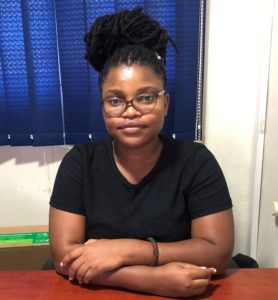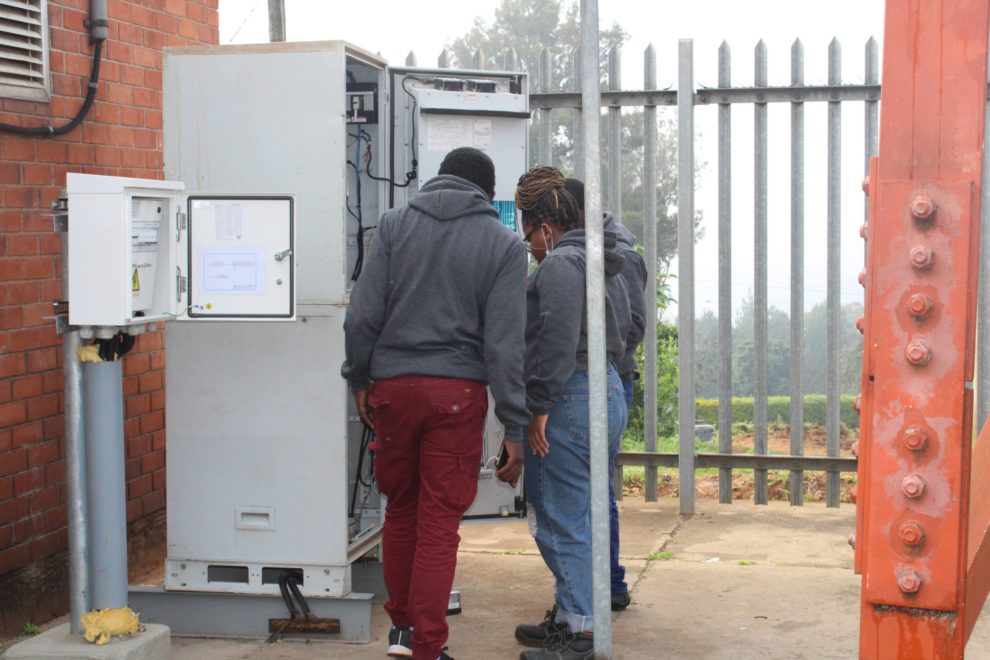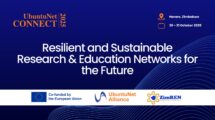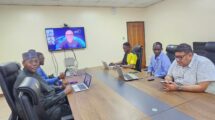This article is featured originally on CONNECT39.
Interview by: Silvia Fiore (GÉANT)

The COVID-19 pandemic made it clearer than ever that reliable and affordable internet connectivity is essential for research and education communities all over the world. Silvia Fiore recently spoke with Carol Namuddu, a proud woman in STEM and NOC Engineer at RENU (the Research and Education Network of Uganda) about her passion for science and technology, and her most recent project involving unlimited bandwidth capacity.
Carol, when you were younger, how did you first become passionate and involved in the fields of science, technology, engineering, and mathematics (STEM)?
I grew up in a family of engineers. The majority of my relatives work in various engineering fields. Growing up with my grandfather, who worked at the Uganda Electricity Board at the time, he always had all these wires, electric meters, and a walkie-talkie, which piqued my interest as a child and sparked my interest in STEM and, when the time of choosing a career path came, engineering more specifically.
Was there any female role model or mentor from the African National Research and Education Networks or wider research and education community who inspired your career in STEM?
TERNET’s former CEO, Dr. Margareth Mushi, has been my biggest role model. Her ability to be an excellent NREN CEO while also being a wife and mother is an inspiration to me. It just goes to show that women can have it all.
You have an impressive list of accomplishments. Can you tell us about your involvement in the Ugandan community advocating for better female representation in tech?
Prior to the outbreak of the the COVID-19 pandemic, I used to volunteer for AfChix, an organisation dedicated to educating young girls in rural secondary schools about technology trends, and the roles and job opportunities available, as well as encouraging them to pursue a future in technology. The goal is to inspire one girl and then, as a result of that, create a domino effect. Other young women in STEM would lead outreach activities in rural areas spreading the word that technology is indeed a doable career path for women too! This is incredibly important for women living in rural areas in Uganda, where the lack of female role models in STEM is prominent.
More recently, you have been part of a team working on the use of the Google ISP portal to measure the impact of unlimited bandwidth utilisation. Can you briefly explain why your research is relevant to Ugandan students and learners, especially during the COVID-19 pandemic?
This study primarily focused on how the majority of traffic from research and education is Google-based, with the goal of highlighting the performance of Google traffic and the internet as a whole. It shed light on the need for adequate bandwidth for proper Internet usage, as well as how the work of most researchers and academics can be limited due to insufficient internet bandwidth, as internet bandwidth is still not yet affordable in most African countries, let alone institutions. Schools and higher education institutions in Uganda are facing very long lockdowns and have been closed for almost two years now, so students and researchers have to connect off-campus. The need for a reliable and affordable internet connectivity is now more relevant than ever.
Where do you see your research in a post-COVID-19 world? How does unlimited bandwidth utilisation help narrow down the digital divide gap in the wider African R&E community?
I see this research being used as a benchmark in other African countries to understand the challenges and limitations of NRENs but also as a basis to further subsidise bandwidth prices to foster affordability and hence enable research and education.
Thank you for introducing us to your precious work, Carol. You are a NOC Engineer, a role that is more commonly taken by men. How have you experienced gender discrimination in your field? Do you think African NRENs can do more to encourage young girls to join their teams?
RENU provides equal opportunities for all its employees. Unfortunately, I have many industry colleagues who have shared their experiences with me, such as scenarios in which they are given easier projects than their male counterparts. These projects end up being uninteresting and can even deter career development and advancement.
What advice would you give to other girls and women who aspire to work in NOC engineering?
Everything is conceivable! If someone was not born with a talent for STEM, just know that it is possible to learn anything and excel at it! Asking for help does not make you appear weak, and learning is a continuous process that occurs on a daily basis.





